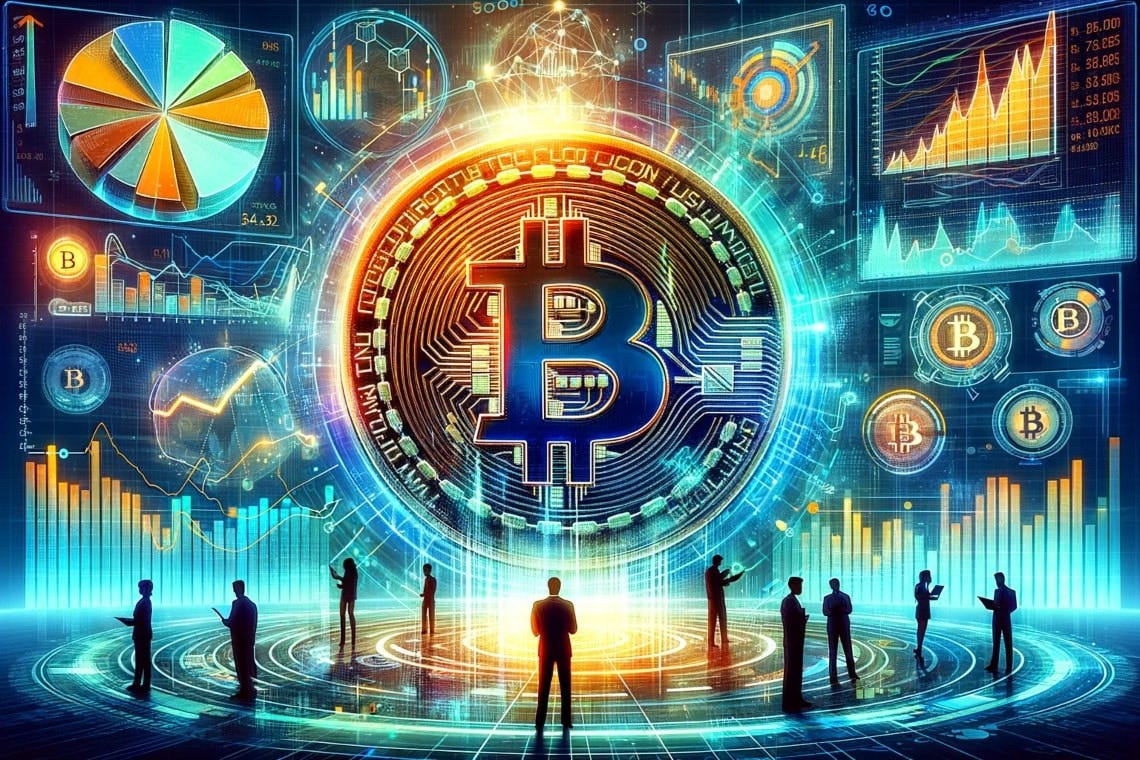The Growing Influence of Crypto in the Gaming Industry

The Evolution of Gaming: From Pixels to Tokens
![]() The gaming industry has come a long way since the days of simple pixelated games. Today, it is a multi-billion-dollar industry characterized by high-definition graphics, immersive virtual realities, and complex narratives. The introduction of cryptocurrency and blockchain technology is poised to add yet another dimension to this evolution.
The gaming industry has come a long way since the days of simple pixelated games. Today, it is a multi-billion-dollar industry characterized by high-definition graphics, immersive virtual realities, and complex narratives. The introduction of cryptocurrency and blockchain technology is poised to add yet another dimension to this evolution.
The initial forays into combining crypto with gaming were experimental. Games like CryptoKitties, launched in 2017, allowed players to breed and trade virtual cats using Ethereum. Despite its simplicity, CryptoKitties demonstrated the potential of blockchain to create unique, tradable digital assets, sparking a wave of innovation.
One of the most significant impacts of cryptocurrency on gaming has been the advent of the play-to-earn (P2E) model. Unlike traditional games where players invest time and money with little to no financial return, P2E games reward players with digital assets that hold real-world value. Games like Axie Infinity and The Sandbox are leading this charge, allowing players to earn tokens through gameplay, which can then be traded or sold on various marketplaces.
Blockchain Technology: The Backbone of Crypto Gaming
At the heart of the crypto gaming revolution lies blockchain technology. This decentralized ledger system offers a level of transparency, security, and ownership that was previously unattainable in digital environments.
Blockchain’s immutable nature ensures that transactions and in-game assets are secure and transparent. Each transaction is recorded on a public ledger, reducing the risk of fraud and hacking. This level of security is crucial in gaming, where virtual assets can hold significant value.
In traditional gaming, players invest in virtual items and currencies, but these assets remain under the control of the game developers. Blockchain changes this by granting players true ownership of their digital assets. NFTs (non-fungible tokens) represent unique items that players can own, trade, or sell independently of the game.
Blockchain also enables interoperability, allowing assets to be used across different games and platforms. This means that a sword acquired in one game could potentially be used in another, provided both games operate on the same blockchain. This opens up a new dimension of value and utility for in-game assets.
Economic Implications: A New Frontier for Monetization
The fusion of crypto and gaming is creating new economic opportunities for developers and players alike. From novel monetization strategies to decentralized finance (DeFi) integrations, the economic landscape of gaming is being redefined.
For game developers, crypto offers new revenue streams beyond traditional sales and in-app purchases. By integrating blockchain, developers can create in-game economies where transactions are facilitated through cryptocurrency. This can include the sale of NFTs, land, and other digital assets within the game.
Tokenomics, the economic system surrounding a game's tokens, empowers players by giving them financial incentives to participate and engage. In play-to-earn models, players earn tokens for their time and effort, which they can trade or reinvest in the game. This not only attracts more players but also fosters a more engaged and loyal community.
DeFi is making its way into gaming, offering players financial services such as staking, lending, and borrowing, using their in-game assets as collateral. This integration creates a more immersive and economically rich gaming experience, where players can earn passive income and participate in decentralized economies.
Challenges and Future Prospects
While the integration of crypto in gaming presents numerous opportunities, it also comes with its set of challenges. Regulatory uncertainties, technological barriers, and market volatility are some of the hurdles that need to be addressed for this sector to reach its full potential.
The regulatory environment for cryptocurrency is still evolving, and gaming companies must navigate a complex web of laws and regulations. Ensuring compliance while maintaining the decentralized nature of blockchain gaming can be challenging. However, as regulators become more familiar with the technology, clearer guidelines are expected to emerge.
Scalability and interoperability are significant technological challenges. Current blockchain networks can struggle with the volume of transactions generated by popular games. Solutions like Ethereum 2.0 and layer-2 scaling technologies are being developed to address these issues, but widespread adoption is still in progress.
The volatile nature of cryptocurrencies can pose risks for both developers and players. Sudden drops in token values can undermine the economic stability of a game, affecting player earnings and developer revenues. Managing this volatility requires careful economic planning and the use of stablecoins where appropriate.
Widespread adoption of crypto in gaming also hinges on player acceptance. While younger, tech-savvy players are more likely to embrace these innovations, mainstream gamers may be hesitant due to the complexity and perceived risks associated with cryptocurrencies. Education and user-friendly interfaces are crucial for broader acceptance.
A Game-Changing Paradigm Shift
The integration of cryptocurrency and blockchain technology into the gaming industry is more than just a trend; it represents a paradigm shift. This convergence is democratizing the gaming economy, providing players with real financial incentives and true ownership of digital assets. For developers, it opens up new revenue streams and innovative ways to engage with their audience.
As the technology matures and regulatory frameworks become clearer, the potential for crypto gaming will only grow. The challenges are significant, but the rewards are even greater. The gaming industry stands on the brink of a revolution, driven by the disruptive power of blockchain and cryptocurrency. This fusion promises to create richer, more immersive, and economically viable gaming experiences, marking the dawn of a new era in digital entertainment.



























![[ℕ𝕖𝕧𝕖𝕣] 𝕊𝕖𝕝𝕝 𝕐𝕠𝕦𝕣 𝔹𝕚𝕥𝕔𝕠𝕚𝕟 - And Now What.... Pray To The God Of Hopium?](https://cdn.bulbapp.io/frontend/images/79e7827b-c644-4853-b048-a9601a8a8da7/1)







![[LIVE] Engage2Earn: Shayne Neumann MP Blair boost](https://cdn.bulbapp.io/frontend/images/d0ae7174-2ceb-4eed-9844-e1c262a4013e/1)

